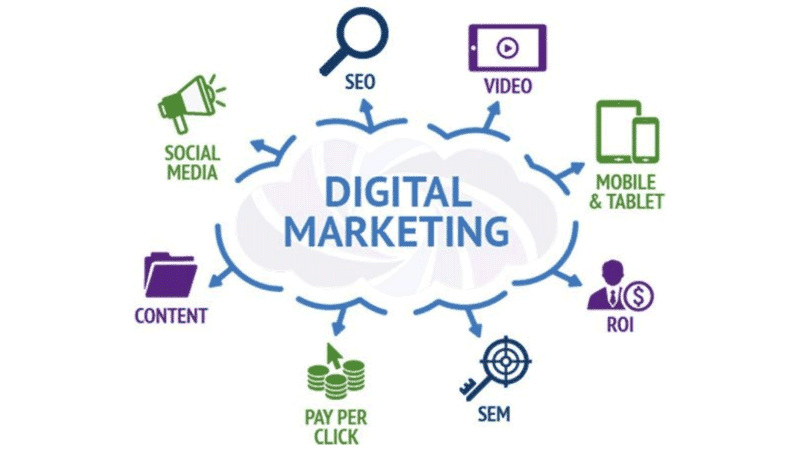It’s time to elevate your online course sales and connect with a wider audience! In this post, we’ll cover 18 effective online marketing strategies that can help you reach your ideal students and maximize your enrollment numbers. Whether you’re just starting out or looking to refine your existing approach, these actionable tips will empower you to promote your online course successfully. Let’s dive in and discover how you can enhance your marketing efforts!
Key Takeaways:
- Identify Your Audience: Understanding your ideal student avatar is critical to tailoring marketing messages that effectively address their frustrations, needs, and desires.
- Diverse Marketing Channels: Utilize a variety of platforms such as social media, blogs, and email marketing to maximize your reach and engage with potential students.
- Engagement Strategies: Implement tactics like live webinars, free mini-courses, and student testimonials to create interest and build credibility for your online course.
Understanding Your Audience
The success of your online course largely depends on how well you understand your audience. Knowing who they are, what they desire, and what challenges they face allows you to tailor your marketing strategies effectively. It’s not just about delivering content; it’s about connecting with your ideal students on a deeper level. To achieve this, you can implement various strategies such as crafting an ideal student avatar, which helps you visualize the characteristics, preferences, and pain points of your target demographic. This initial step can empower your marketing efforts and ensure that your messages resonate throughout your promotional activities.
Defining Your Ideal Student
Understanding who your ideal student is, allows you to pinpoint their needs and frustrations. Take the time to create a detailed profile, including demographics, interests, and their reasons for seeking out an online course like yours. This targeted approach enables you to create focused marketing messages that speak directly to your audience and encourage engagement. Knowing your student avatar not only assists in content creation but also improves your online course delivery, making it a more meaningful experience for your learners.
Crafting Your Unique Value Proposition
With a clear understanding of your audience, the next step is to develop your unique value proposition (UVP). This statement encapsulates what makes your online course stand out and why potential students should choose you over competitors. Your UVP should address your ideal student’s specific problems and demonstrate how your online course offers the solution they need. It can be as simple as pinpointing a unique teaching style, exclusive resources, or specialized content that addresses a niche market.
Another critical aspect of crafting your UVP is to ensure it is concise yet compelling. A strong UVP differentiates you in a crowded marketplace and can significantly influence a potential student’s decision-making process. Be mindful of, your unique value proposition should not only highlight what makes your onlilne course special but also evoke the emotions and desires that your target audience experiences. Implementing this strategy effectively will enhance your marketing efforts and ultimately drive online course sales.

Pre-Launch Marketing Strategies
Clearly, a strong pre-launch marketing strategy can make all the difference when it comes to selling your online course. It’s imperative to create a buzz around your online course before it’s even released. One effective approach is to tap into various marketing techniques that focus on building awareness and generating excitement. For more insights on this subject, check out How to Market an Online Course: 60 Proven Ways in 2024 that can provide you with valuable tactics tailored to the online landscape. By investing time in these strategies, you’ll set the stage for a successful launch and ensure that potential students are eager to enroll once your online course goes live.
Building Anticipation with Teasers
One of the most effective ways to engage your audience prior to your course launch is through captivating teasers. By sharing previews of your course material, behind-the-scenes content, or even snippets of your teaching style, you can spark interest and encourage potential students to stay tuned for your official release date. Utilize social media platforms, email newsletters, and even your blog to drip-feed valuable content that highlights the benefits of your course. As viewers become curious and excited, they’ll be more likely to sign up once your course is available.
Creating a Compelling Course Title
Any successful course marketing strategy hinges on a strong course title that captures attention and conveys the essence of what your course offers. A well-crafted title not only piques interest but also helps convey your unique value proposition. When developing your course title, consider using keywords that resonate with your target audience. This optimization not only improves discoverability but also ensures that potential students immediately grasp the course’s value and relevance to their needs.
Compelling course titles can serve as a powerful marketing tool. They should evoke curiosity while clearly defining what learners can expect to gain from your course. Incorporate descriptive language and emphasize outcomes or benefits that resonate with your ideal student avatar. By doing this, you effectively communicate the purpose of your course and entice potential students to learn more about what you have to offer.
Content Marketing Techniques
Your online course won’t sell itself, and that’s where effective content marketing techniques come into play. By creating valuable and relevant content, you not only attract potential students but also establish yourself as an authority in your niche. Two powerful content marketing strategies are blogging and utilizing video platforms like YouTube. These methods can effectively boost your course sales while providing your audience with engaging and useful information.
Blogging to Build Authority
For anyone looking to establish an authoritative presence, blogging is a proven strategy. With a well-crafted blog, you can share your expertise, insights, and tips that resonate with your ideal student avatar. Providing high-quality, consistent content not only helps in building trust with your audience but also improves your SEO, making it easier for potential students to discover your course. Additionally, incorporating keywords related to your course into your blog posts will help your content rank higher in search results, driving even more traffic to your website.
Utilizing YouTube for Engagement
Marketing on YouTube is an effective way to create engagement with your audience. Video content allows you to showcase your personality and expertise while explaining concepts from your course in a digestible, visually appealing way. By sharing relevant content such as tutorials, behind-the-scenes looks at your course creation process, or even testimonials from happy students, you can build a connection with viewers and encourage them to enroll. Additionally, including links to your course in video descriptions or during calls to action can lead directly to conversions.
Utilizing YouTube for engagement can also amplify your reach through its vast user base. With over 2 billion logged-in monthly users, sharing video content can effectively tap into a wide audience. Consider creating a channel dedicated to your course topics, offering valuable insights while positioning yourself as a thought leader in your field. By regularly updating your channel with fresh content and engaging with comments, you can not only enhance viewer interest but foster a community around your course, increasing its visibility and potential sales.
Social Media Strategies
For online course creators, social media is an invaluable tool that can significantly boost your course sales and expand your reach. Engaging with potential students through platforms like Facebook, Instagram, TikTok, and LinkedIn allows you to build a dedicated community around your content. Utilize different strategies tailored to each platform, as they can help you reach and resonate with your ideal audience effectively. From targeted ads to organic posts, a well-rounded social media strategy can turn casual browsers into committed buyers.
Leveraging Facebook Groups
For many course creators, Facebook groups present a unique opportunity to connect with potential students in a more personal and engaging manner. By creating a dedicated group focused on your course topic, you can share valuable insights, answer questions, and foster discussions among your members. This not only positions you as an authority in your niche but also builds a sense of community, encouraging group members to enroll in your course. Additionally, consider joining existing groups relevant to your niche to engage with a larger audience—they can be a goldmine for market research and networking!
Instagram Campaigns for Visual Appeal
One of the most effective ways to capture attention on social media is through visually appealing content, and Instagram is the perfect platform for that. With its emphasis on stunning visuals, you can showcase snippets of your course, share inspiring testimonials, and post behind-the-scenes moments of your teaching journey. Creating an Instagram campaign that reflects your course’s aesthetic will not only attract more followers but also highlight the value of what you offer. Engaging with your audience through stories and live sessions can further encourage interaction and build a connection that translates into course sales.
A strong Instagram campaign can significantly enhance the visual appeal of your course offerings. Utilize high-quality images, attention-grabbing graphics, and engaging videos to create content that sparks curiosity and interest. Don’t forget to use relevant hashtags and consider collaborating with influencers in your niche to expand your reach. By nurturing a vibrant Instagram presence, you’re not just promoting a course; you’re inviting potential students to become part of a community that shares their interests and goals. As mentioned earlier, implementing visual strategies can yield promising results, helping you stand out in a crowded online market.

Email Marketing Essentials
After you’ve poured your heart and soul into creating your online course, the next step is to ensure that people know about it. One of the most effective ways to do this is through email marketing. Building a strong, targeted email list allows you to reach potential students directly, offering them valuable content and insights that will ultimately lead them to enroll in your course. If you’re looking for strategic guidance, check out this resource on How to Market Online Courses: 7+ Smart Strategies for Success. You’ll discover various tactics that can amplify your reach and increase your course sales.
Building a Targeted Email List
To effectively market your online course, the foundation starts with building a targeted email list. Focus on attracting subscribers who fit your ideal student avatar—people who are genuinely interested in the subject matter you’re teaching. Offer an enticing lead magnet, such as a free mini-course or an exclusive e-book related to your course content, in exchange for their email addresses. This strategy not only helps you collect email addresses but also establishes your credibility and showcases the value of your course before it even launches.
Crafting Compelling Newsletters
With a targeted email list in place, the next step is to engage those subscribers through compelling newsletters. Your emails should provide value, not just serve as a sales pitch. Share helpful tips, insights, and personal stories related to your course topics, so your subscribers feel connected to you and your content. Use eye-catching subject lines and maintain a friendly, approachable tone to keep your audience engaged and eager to open your emails.
Email marketing is a powerful tool that, when executed effectively, can significantly boost your course enrollments. By focusing on building a targeted email list and crafting compelling newsletters, you will foster relationships with your audience and guide them toward making a purchase decision. Be mindful of, consistency is key, so strive to keep your audience engaged with regular updates, valuable content, and timely course promotions.

Engaging with Webinars
Unlike traditional marketing methods, webinars provide an interactive platform for you to connect with your audience, showcasing your expertise while engaging potential students. This live format can significantly boost your course sales, as it allows you to present your course content in a dynamic way. By hosting webinars, you can directly address your audience’s questions and concerns, thereby building trust and fostering a community around your course. If you’re looking for a comprehensive approach to improve your marketing efforts, check out these 18 powerful online marketing strategies to sell courses faster.
Hosting Live Q&A Sessions
Live Q&A sessions are an excellent way for you to interact with your audience. By giving your potential students the chance to ask questions about your course content, you can clarify uncertainties and highlight the value of what you’re offering. This can be a game-changer since addressing doubts on the spot often leads to higher conversion rates. Furthermore, these sessions can provide you with valuable insights into what your audience truly values, helping you refine your course and marketing strategies.
Recording and Sharing Webinar Content
Webinar recordings are a powerful tool for extending the reach of your marketing efforts. By recording your live sessions, you create valuable content that can be repurposed and shared across multiple platforms—making it accessible to those who couldn’t attend the live event. This not only enhances your online presence but also serves as an ongoing promotional tool that allows potential students to experience your teaching style at their convenience.
Another great strategy is to share the recorded webinars on your website and social media channels. This way, you are not only providing additional value to your audience but also using the content as a lead generation tool; viewers can opt into your email list in exchange for access to the recorded sessions. This approach helps cultivate a nurturing environment for your leads, guiding them toward enrolling in your course. Utilizing these strategies effectively can significantly amplify your course’s visibility and drive sales.
Conclusion
With these considerations in mind, you are well on your way to boosting your course sales through effective online marketing strategies. By understanding your audience and leveraging various promotional techniques, you can create a strong presence that resonates with potential students. Whether it’s optimizing your social media profiles, crafting compelling content, or hosting engaging webinars, each strategy can play a crucial role in growing your reach and increasing your revenue.
Always remember that the key to success lies in consistency and adaptability. As you implement these recommendations, keep refining your approach based on feedback and performance metrics. Your journey in marketing your online course doesn’t end here—it’s a continuous process of learning and improvement. So go ahead, look into these proven strategies, and watch your course sales soar!
FAQ
Q: What are some effective online marketing strategies to boost my course sales?
A: To effectively boost your course sales, consider using these top online marketing strategies: 1. Create a Compelling Course Sales Page: Your sales page should clearly outline the benefits and outcomes of your course, with eye-catching visuals and testimonials. 2. Utilize Email Marketing: Build an email list and regularly communicate with potential students about your course offerings, special promotions, and valuable content. 3. Leverage Social Media: Use platforms like Instagram, Facebook, and TikTok to share engaging content related to your course to attract your target audience and drive them to your sales page.
Q: How can I utilize student testimonials in my marketing strategy?
A: Student testimonials are a powerful marketing tool that can significantly enhance your course’s credibility and appeal. Here’s how to effectively use them: 1. Highlight Testimonials on Your Sales Page: Place positive feedback prominently on your course sales page to influence potential buyers. 2. Create Video Testimonials: Encourage satisfied students to share their experiences in video format, which can be more engaging and convincing for prospective students. 3. Share Testimonials on Social Media: Regularly post snippets of student testimonials on your social media channels to foster trust and encourage others to enroll in your course.
Q: Is it beneficial to offer a free mini-course or webinar as part of my marketing strategy?
A: Yes, offering a free mini-course or webinar can be highly beneficial for your marketing strategy. It serves as a lead magnet to attract potential students, allowing them to experience your teaching style and the value of your course content without any financial commitment. This tactic can: 1. Build Trust: Giving away valuable content for free allows potential students to see the quality of your material and expertise, establishing trust. 2. Capture Leads: You can collect email addresses from participants, enabling you to follow up with marketing messages related to your full course. 3. Generate Engagement: Live webinars encourage interaction, allowing you to engage with your audience directly and address their queries, which can further persuade them to purchase your course.

